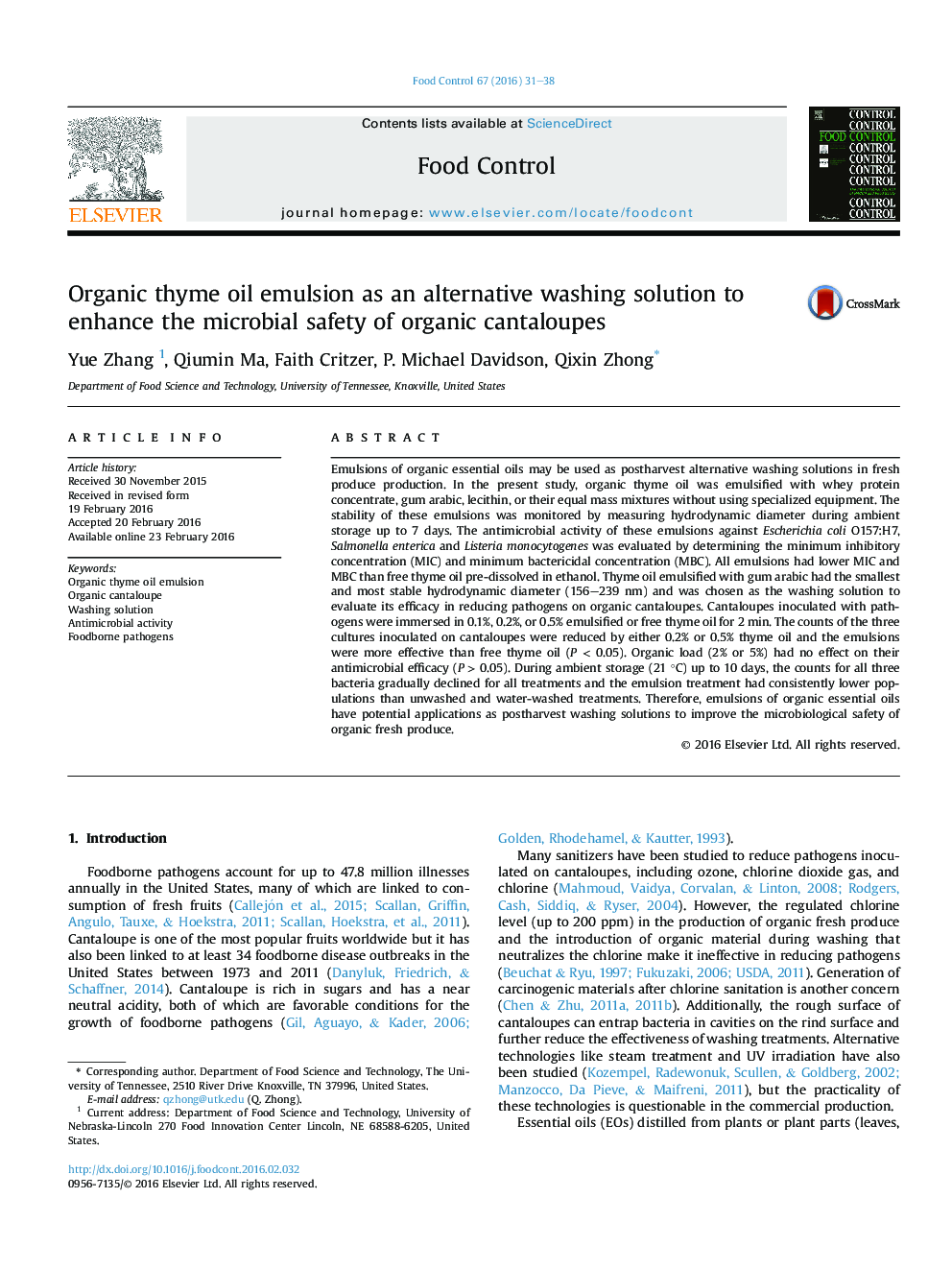| Article ID | Journal | Published Year | Pages | File Type |
|---|---|---|---|---|
| 6390092 | Food Control | 2016 | 8 Pages |
Abstract
Emulsions of organic essential oils may be used as postharvest alternative washing solutions in fresh produce production. In the present study, organic thyme oil was emulsified with whey protein concentrate, gum arabic, lecithin, or their equal mass mixtures without using specialized equipment. The stability of these emulsions was monitored by measuring hydrodynamic diameter during ambient storage up to 7 days. The antimicrobial activity of these emulsions against Escherichia coli O157:H7, Salmonella enterica and Listeria monocytogenes was evaluated by determining the minimum inhibitory concentration (MIC) and minimum bactericidal concentration (MBC). All emulsions had lower MIC and MBC than free thyme oil pre-dissolved in ethanol. Thyme oil emulsified with gum arabic had the smallest and most stable hydrodynamic diameter (156-239 nm) and was chosen as the washing solution to evaluate its efficacy in reducing pathogens on organic cantaloupes. Cantaloupes inoculated with pathogens were immersed in 0.1%, 0.2%, or 0.5% emulsified or free thyme oil for 2 min. The counts of the three cultures inoculated on cantaloupes were reduced by either 0.2% or 0.5% thyme oil and the emulsions were more effective than free thyme oil (P < 0.05). Organic load (2% or 5%) had no effect on their antimicrobial efficacy (P > 0.05). During ambient storage (21 °C) up to 10 days, the counts for all three bacteria gradually declined for all treatments and the emulsion treatment had consistently lower populations than unwashed and water-washed treatments. Therefore, emulsions of organic essential oils have potential applications as postharvest washing solutions to improve the microbiological safety of organic fresh produce.
Related Topics
Life Sciences
Agricultural and Biological Sciences
Food Science
Authors
Yue Zhang, Qiumin Ma, Faith Critzer, P. Michael Davidson, Qixin Zhong,
